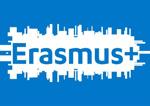
Important Dates
OUTGOING:
Application deadline for the following academic year: 31 January
INCOMING:
Application deadline for the following winter semester and academic year:
31 March
Application deadline for the following summer semester:
30 November
Further Information
Available on the German Academic Exchange Service (DAAD) website at www.daad.de
Erasmus+
From 2024, applications will be submitted online via the mobility online platform: https://mobility.aec-music.eu/LoginServlet
Erasmus+ is the EU programme for education, training, youth and sport. Under the motto "Enriching lives, opening minds", it promotes Europe-wide cooperation in all areas of education. In various programme lines, German higher education institutions have the opportunity to promote the international exchange of their students and university staff, to establish cooperation and partnership programmes and to use a wide-ranging institutional exchange between higher education institutions in Europe and worldwide.
In the new generation of Erasmus programmes, 33 countries are participating as so-called programme countries. In addition to the 27 EU member states, these are Iceland, Liechtenstein, Northern Macedonia, Norway, Serbia and Turkey. The United Kingdom is no longer participating as a programme country after Brexit, but will continue to be listed as a partner country in a programme line for non-EU countries. The measures of the old Erasmus programme generation 2014-2020 with the United Kingdom can still be funded until May 2023. However, as part of the extended international opening of the programme, students in the new programme generation can also go to the UK to a limited extent.
In Germany, the Federal Ministry of Education and Research (BMBF) acts as the National Agency for Erasmus. As one of four national agencies, the DAAD is responsible for implementing the Erasmus programme in the field of higher education.
Erasmus + Innovations from 2021
- Students may receive multiple funding for each course (bachelor’s degree, master’s degree, doctorate)
- Each study cycle may be funded for 12 months
- Internships may be funded for two months during and after graduation
- Teaching assistantships are funded as internships
SMS (Study Abroad for Students)
After completing their first year of study, students may study with Erasmus + at a university in another participating European country to expand their social and cultural skills and improve their career prospects. They will have an opportunity to learn about a foreign university’s academic system as well as teaching and learning methods.
The promotion of language acquisition and skills is an important goal of the European Union's education program, Erasmus + (from 2014 to 2020). Erasmus + supports student mobility in acquiring and refining work and/or language expertise. An online language support (OLS) system includes a language test before and after the overseas stay, as well as a language course.
Requirements for Erasmus Study Abroad
- Regular enrollment at a German university
- Completion of the first year of study
- Study visit at a partner university with which the home university has concluded an Erasmus cooperation agreement or inter-institutional agreement
- Home and host university have a valid Erasmus Charter for Higher Education (ECHE)
Erasmus Funding for Study And Internship
The Erasmus + program is divided into projects. The level of funding rates for the three country groups is set by the DAAD national agency at a national level to create equality and transparency for students. Please contact the International Office to learn the current funding rate for target countries.
Instructor Mobility (STA)
Erasmus + supports guest lectureships at European partner universities with a valid Erasmus Charter for Higher Education (ECHE). During their stays, guest lecturers should strengthen the European dimension of the host university, complement its range of courses, and impart specialist knowledge to students who are unable to study abroad. If possible, joint study programs in the partner universities should be developed, as well as exchange of teaching content and methods.
Personnel from foreign companies and organizations may also be invited to German universities for teaching purposes. Staff mobility must not occur in a program country which is the main country of residence of the person concerned.
Teaching stays within Europe last from two days to two months, not including travel time. Teaching workload is at least eight hours per stay or per week.
Personnel Mobility (STT)
Erasmus + enables supplementary training of university staff in program countries to enhance internationalization. Stays abroad last from two days to two months. STT can support university staff from all areas.
Further training formats include: internships, study visits, and participation in workshops and seminars. A stay means professional exchange and new perspectives, strengthening personal competences, and expanding and intensifying networks.
Application Process
January 15 is the registration deadline for study and internships for the following full academic year, consisting of winter and summer semesters. The application is submitted to the European Online Application System after prior consultation with the International Office.
Required documents:
- Table format résumé
- Motivational letter
- Recommendation from a major subject instructor or institute director
- Transcript
- A recent meaningful audio and/or visual recording
Please also visit the website: www.daad.de